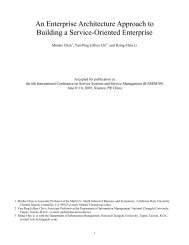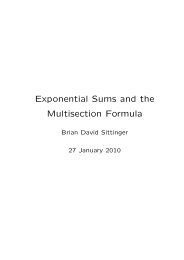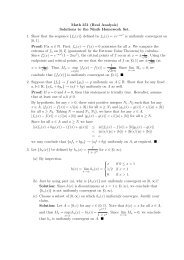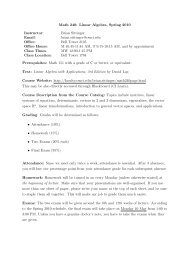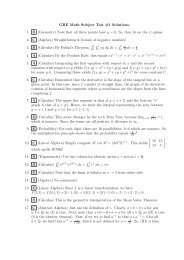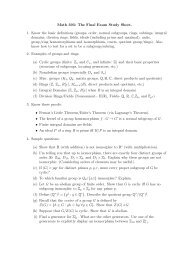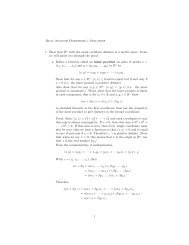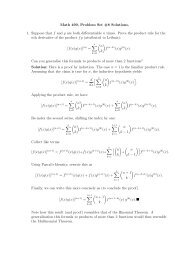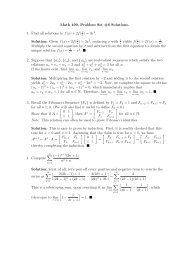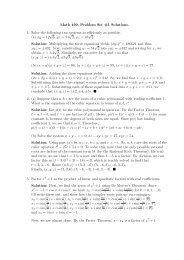MEMORANDUM ASCSU Senator - CSU Channel Islands
MEMORANDUM ASCSU Senator - CSU Channel Islands
MEMORANDUM ASCSU Senator - CSU Channel Islands
You also want an ePaper? Increase the reach of your titles
YUMPU automatically turns print PDFs into web optimized ePapers that Google loves.
affected. As chairs, our collective experience with transfer students suggests that the real impact<br />
of the proposal will be at the “wholesale” level, as departments and programs will seek to solve<br />
their SB 1440 “problems” by securing American Institutions waivers. Finally, the proposal<br />
would also enable “high-unit professional programs” to request exemptions from the American<br />
Institutions requirement. This latter provision strongly suggests that something more than SB<br />
1440 compliance is at work here and that the waiver will have a much broader impact than we<br />
have been led to believe.<br />
If the waiver proposal is adopted, negative competition among campuses will inevitably drive<br />
the American Institutions requirement to the lowest common denominator, significantly<br />
undermining the <strong>CSU</strong>’s commitment to civic education. Each campus will be given the<br />
“opportunity” to set rules for implementation and a race to the bottom will follow. Campuses<br />
will be tempted to lure potential students and increase enrollments by approving American<br />
Institutions waivers for popular, growing programs. This will put pressure on other programs<br />
and campuses to follow suit, and we will find the waiver option being used to exempt substantial<br />
categories of transfer students from the American Institutions requirement. As a result, the<br />
requirement will ultimately be rendered incoherent. We will be asked: “Why is it more crucial<br />
for student A than for student B, or for department A than department B?” Or, “why do native<br />
students have to meet the requirement if some – or most – transfer students do not?” And,<br />
having compromised the principle by approving the waiver proposal, neither the administration<br />
nor the faculty will in the future be able to find solid ground for insisting on the relevance of<br />
civic education.<br />
V. Shared Governance and Faculty Opposition to the Waiver Proposal<br />
Because the proposal was introduced at the end of the academic year, most faculty and<br />
deliberative bodies through which faculty exercise control over curriculum learned of the<br />
American Institutions waiver only at their final meetings of the spring semester. Consequently,<br />
they had little to no time to deliberate over this matter.<br />
Nonetheless, support for civic education at the <strong>CSU</strong> was sufficiently strong that when informed<br />
of the waiver proposal no fewer than thirteen (13) campus senates passed resolutions either<br />
objecting to it and/or requesting that a final decision by the Board be deferred until the level of<br />
consultation required by the practice of shared governance had occurred. The <strong>AS<strong>CSU</strong></strong> added its<br />
voice to this chorus, passing a similar resolution during its last plenary session in May 2011.<br />
The stream of resolutions only stopped for the preparation of this position paper. Thus, we can<br />
say in good faith that the views outlined here represent the full range of concerns that have been<br />
expressed by a number of broadly-based representative faculty bodies across the <strong>CSU</strong> system.<br />
To date, not one duly-constituted faculty body having standing to speak to curricular issues has<br />
expressed support for the proposed American Institutions waiver.<br />
7



